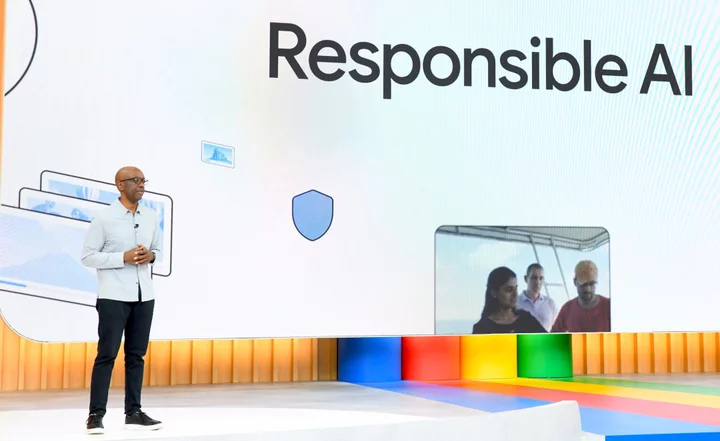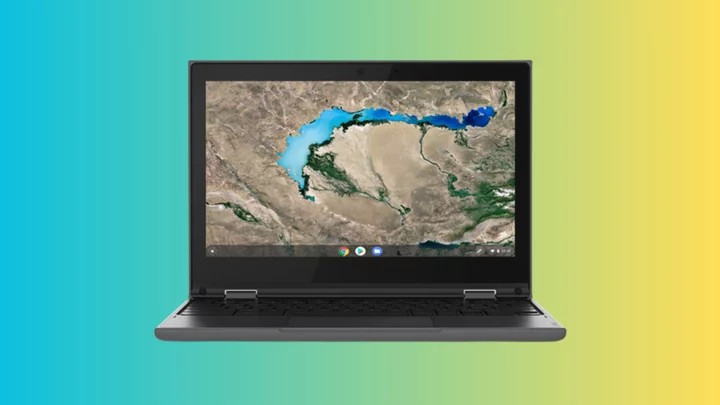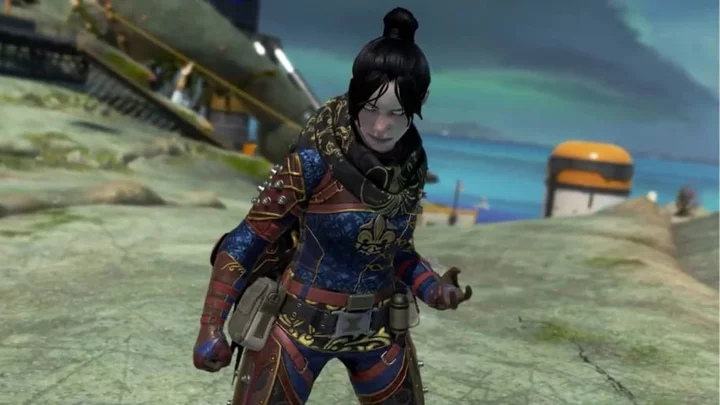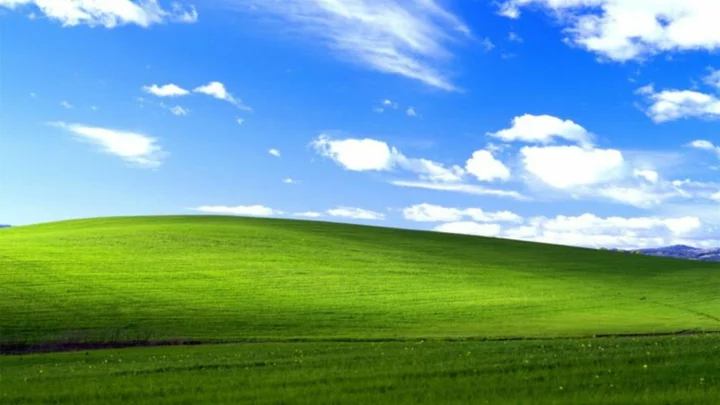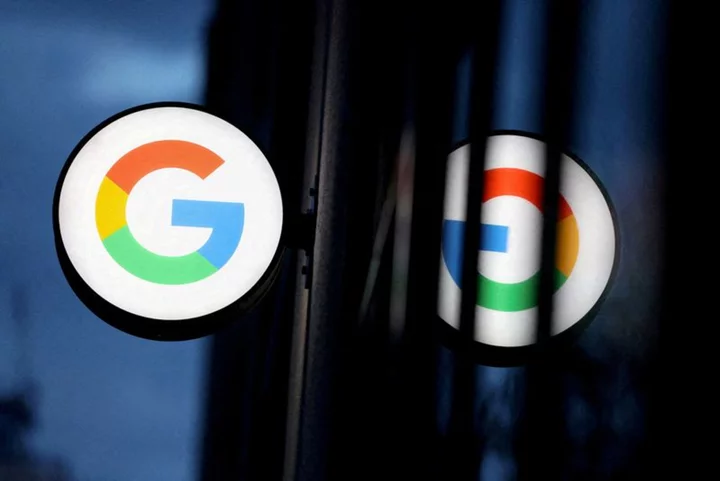Even a company as mighty as Google, and even a technology with as much potential as AI, can't control the increasingly weird California weather.
So, though CEO Sundar Pichai brought the world's developers and media to an outdoor stadium for a two-hour unveiling of Google's new AI offerings, he cannot be blamed for the unusually chilly May fog that choked Mountain View. Not even if it left his audience so cold that this distressed cry was heard in the bathroom line afterwards: "I can't feel my hands!"
But the Google IO keynote itself being a cold fish? A dull imitation of a too-long Apple event, despite major AI news on the Gmail, Docs and search fronts? That charge we very much can lay at the door of the Googleplex down the road. This unveiling, frankly, could have been a Gmail.
SEE ALSO: All the AI announcements from Google I/O 2023It didn't have to be that way. Google had promised a showcase for all the creativity that its AI service Bard can unleash. The pre-show on the rainbow-framed Shoreline Amphitheater stage featured creature-packed AI-generated visualizations behind a DJ who had the crowd bopping before summoning a duck with giant lips, like something from a Disney fever dream, in person.
Here was something Apple has never done, a warm-up act (literally warming us up, in this case). Here was something Microsoft didn't do in its ChatGPT-powered Bing launch: not just showcasing AI, but making it look fun.
And to be fair to Pichai, who took the stage post-duck promising to "make AI helpful to everyone," he made a good decision to open with the Bard integration in Gmail. Normally it would be hard to make a Gmail announcement sexy, but AI-written email replies (in draft form, ready for your edits) could be a killer app for Google.
GIMME. Credit: GoogleI'm surely not the only reluctant email user. Nor the only person with ADHD who struggles with the stress of an empty reply window. Indeed, AI-powered Gmail has such potential, I wish the CEO had lingered longer. Pichai barely had time to show one example, in which Bard replied to a canceled flight alert with a request for a refund — available in both plain and, according to one option on screen, "elaborate" flavors.
What did "elaborate" mean, exactly? Were there some other intriguing examples of email responses, perhaps? We were left to discover on our own. Maybe Google has learned its lesson from the first Bard search event, where the AI famously got an answer wrong.
Trouble is, that sort of thing is exactly why we the users are skeptical of AI and its "hallucinations." This is exactly why we need to go in deep.
And Google rarely did. The word AI was shoehorned into every segment of the two-hour event, so much so that even the coveted Pixel products seemed subordinate (the Pixel itself, once just a smartphone, had now been retroactively "leading the way in AI hardware for years.") The Pixel tablet presentation almost escaped unscathed, until a mention of its "cutting edge AI" was sprinkled in. I tried an "AI" drinking game using Google's coffee, and was wired by the end.
Now welcoming to the main stage at Coachella ... Generative AI Wallpapers! Credit: David Paul Morris/Bloomberg via Getty ImagesTo be fair, it wasn't all segments like the interminable "Generative AI wallpaper" demo. There was also a presentation on Google's vision of "bold and responsible AI," highly necessary when your product can be misused. It's nice to see the company include reverse image search, and digital watermarking of its own AI images. That is a much-needed bid to hold back the tide of disinformation — such as the "fake moon landing" used in the segment.
Now if only Bard would only write back to your conspiracy-loving uncle on Facebook for you, we'd be set.
But what tied these announcements together, other than the desperate desire to juice Google's standing on Wall Street with multiple mentions of the latest tech buzzword? If you squinted through the dizzying demos of Google Workspace with Bard integration, you could just about see the brave new world Google was promising — a utopian future where we don't need to write our own first drafts, or summarize our own documents, or build our own spreadsheets. A fairly competent digital assistant can do it for us. (Perhaps AI would be less scary if it stood for "Artificial Intern.")
But the vision thing was barely tied together. Google seemed to take a lot of inspiration from Apple keynotes — but the Tim Cook kind, not the Steve Jobs original. Jobs was so good at lulling us into his rapturous concept of what technology could do, he was said to have a "reality distortion field." Perhaps Pichai could ask Bard to write his next keynote in the style of Jobs. It would certainly be easier than predicting the weather.

